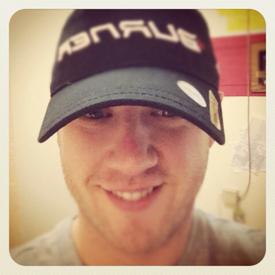exercise calories

thesweatybetty
Posts: 107 Member
Okay - first off, I KNOW there are 8927349873 topics posted about this subject, but I really don't feel like searching every single one while I'm 'busy' at work.
I am currently doing the BodyForLife challenge, which encourages you not to count calories. It focuses more on using your hand and fist, eating a 40/40/20 - carb/protein/healthy fat.
About 90% of the time, I am under my calorie goal when I workout (and sometimes under my calorie goal when I don't workout)
So let me have.. the pros and the cons to eating/not eating your exercise calories.. and back up info would be great
I am currently doing the BodyForLife challenge, which encourages you not to count calories. It focuses more on using your hand and fist, eating a 40/40/20 - carb/protein/healthy fat.
About 90% of the time, I am under my calorie goal when I workout (and sometimes under my calorie goal when I don't workout)
So let me have.. the pros and the cons to eating/not eating your exercise calories.. and back up info would be great
0
Replies
-
I don't have any "back up info" except my personal experience. I started off not eating my exercise calories, using them only as a safety net. I shed a few pounds here and there over the course of a month or so, but didn't really see great results. I read on the forums that when you hit a plateau, you should try upping your calories OR eating your exercise calories back if you don't already. I started to, and man, I feel so much better. I have energy and have been losing weight faster. Plus, I don't feel deprived if I want an extra small snack after working out. In my opinion, your body needs the fuel it used burning all those calories to function throughout the day...maybe give it a try!0
-
I eat mine. I don't really see a reason not to.
I try to keep my daily net somewhere around 1775-1875.0 -
I look at calories, but that's not what I base my diet on. Much to everyone's dismay, fat put in to the body does not store as fat in the body. Carbohydrates are the main culprit on why people are fat. Rice, pasta, bread, potatoes at every meal really add up. I am on an Atkins-type diet that focuses on low-carb, moderate-fat, and high-protein. Protein protects the muscle and unless you have enough protein in your body, your body will break down muscle under the presence of carbs. If you take in enough protein to protect your muscle (120g minimum per day on average), then your body can only burn fat which consists of both fat and carbs (mostly carbs.)
I put my diet at 30/60/30 carbs/protein/fat and that's only because I work out 5-6 times a week.
If I were less active, I would do more 25/65/30 carbs/protein/fat.
A lot of people disagree with this diet but I've been following it and in the last year alone, I've lost 10lbs of body weight with 8 of those pounds being fat, 2lbs being water, and I actually gained .1lbs of muscle. Proof is in the low-carb pudding kids!0 -
I look at calories, but that's not what I base my diet on. Much to everyone's dismay, fat put in to the body does not store as fat in the body. Carbohydrates are the main culprit on why people are fat. Rice, pasta, bread, potatoes at every meal really add up. I am on an Atkins-type diet that focuses on low-carb, moderate-fat, and high-protein. Protein protects the muscle and unless you have enough protein in your body, your body will break down muscle under the presence of carbs. If you take in enough protein to protect your muscle (120g minimum per day on average), then your body can only burn fat which consists of both fat and carbs (mostly carbs.)
I put my diet at 30/60/30 carbs/protein/fat and that's only because I work out 5-6 times a week.
If I were less active, I would do more 25/65/30 carbs/protein/fat.
A lot of people disagree with this diet but I've been following it and in the last year alone, I've lost 10lbs of body weight with 8 of those pounds being fat, 2lbs being water, and I actually gained .1lbs of muscle. Proof is in the low-carb pudding kids!
did low-carb quite a few times before.. never worked for me, always felt deprived. now im trying to just balance my eating.. i think there are very few people that can sustain a life-long low-carb lifestyle, just saying0
This discussion has been closed.
Categories
- All Categories
- 1.4M Health, Wellness and Goals
- 398.2K Introduce Yourself
- 44.7K Getting Started
- 261K Health and Weight Loss
- 176.4K Food and Nutrition
- 47.7K Recipes
- 233K Fitness and Exercise
- 463 Sleep, Mindfulness and Overall Wellness
- 6.5K Goal: Maintaining Weight
- 8.7K Goal: Gaining Weight and Body Building
- 153.5K Motivation and Support
- 8.4K Challenges
- 1.4K Debate Club
- 96.5K Chit-Chat
- 2.6K Fun and Games
- 4.8K MyFitnessPal Information
- 13 News and Announcements
- 21 MyFitnessPal Academy
- 1.6K Feature Suggestions and Ideas
- 3.2K MyFitnessPal Tech Support Questions


